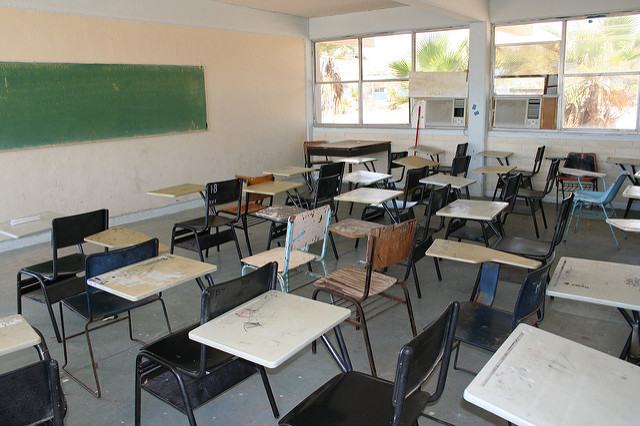5 Lessons You’ll Learn from Your TEFL Mistakes
Ah, TEFL mistakes. Every first-time teacher’s been there. Whether it’s a case of letting homework mishaps slide or having a grammar kerfuffle in-front of the kids, there are actually some really valuable lessons to be learned from those classroom nightmares. Here, we take a look at five of the most common, and the fables they tell us about working in the EFL world.

English only!
Of course, the holy grail of any TEFL class is immersion. Complete, utter immersion. That means there should not be a hint of Mandarin flying around those Taiwanese schoolrooms, no touch of Spanish audible between the desks of your Colombian classroom, and no whiff of a single khob khun na krup as you attempt to teach English under the Thai sun! Not only will allowing instances of the native language sacrifice that all-important elicitation (forcing students to struggle for words they don’t quite know), but it will also damage student talking time – the main vehicle for learning through conversation.
Always check that homework
No matter the age of your class – whether mature adult learners or homework-hating children – if you neglect, just once, to check that homework, then you’ve set a precedent which means it’ll forever be left undone, “forgotten”, eaten by the proverbial dog (that pup must have had its fair share by now!) – the list of excuses goes on. In fact, if you’re finding it particularly difficult to keep up with marking and checking all that extracurricular work, it might be an idea just to reduce the amount you’re giving. Remember: not setting and not checking is better than setting and neglecting. (I’m a poet but I didn’t know it.)
Avoid using the same games
This uber-common of TEFL mistakes holds truest when it comes to teachers working with younger classes, where the attention span is considerably less and the demand on new material is considerably more! Don’t think you can just stroll into the classroom and pull out the same quiz questions or opposites cards as the week before. Even if you try to pass this off as necessary revision, then you’re likely to be shot down by groans and moans and a palpable lack of enthusiasm (kids will rarely care about letting you know they aren’t happy!). New EFL games aren’t hard to find each week, and just varying one a little can make all the difference. (Disclaimer here: some games are an exception to the rule and will always be a hit. I remember being asked for hangman virtually every lesson by one class. They’re rare, but it does cut both ways…)

Pay attention to regional customs and traditions
Flat palms mean ‘hold on’ in northern Europe, but are an ancient Byzantine slur in Greece. Thumbs up are an enthusiastic ‘well done’ in the United States, but will send locals rallying with offence and anger in the Middle East. Crossed fingers means ‘good luck’ in many places, but will get you some pretty offended stares in Southeast Asia. The point here is that EFL teachers should always be careful when it comes to working in places with stark cultural differences to their own home. It’s important to pay attention to what’s acceptable and what’s not, so that you don’t end up alienating or, worse, upsetting your students!
Know thy grammar!
Is it a gerund or a present participle? Does this one need a relative clause, or should commas be kept at bay? What’s that adjective order again? Where does the apostrophe go? The cacophony of grammar-related questions you can expect to receive as an EFL teacher is overwhelming! I remember a few classes (you know, the too-cool-for-school kids) who’d never let me off the hook. If I didn’t know the answer they’d pin me a in a corner with an interrogation worthy of James Bond. A couple of those TEFL mistakes later and you’ll be swatting up on your cases, tenses, apostrophes and the whole lot. In short: become a grammar wiz!
Can you think of any more TEFL mistakes? Or, are you ready to take the plunge, get certified and hit the classroom? Be sure to leave a comment below and check out our offering of internships across the globe!

